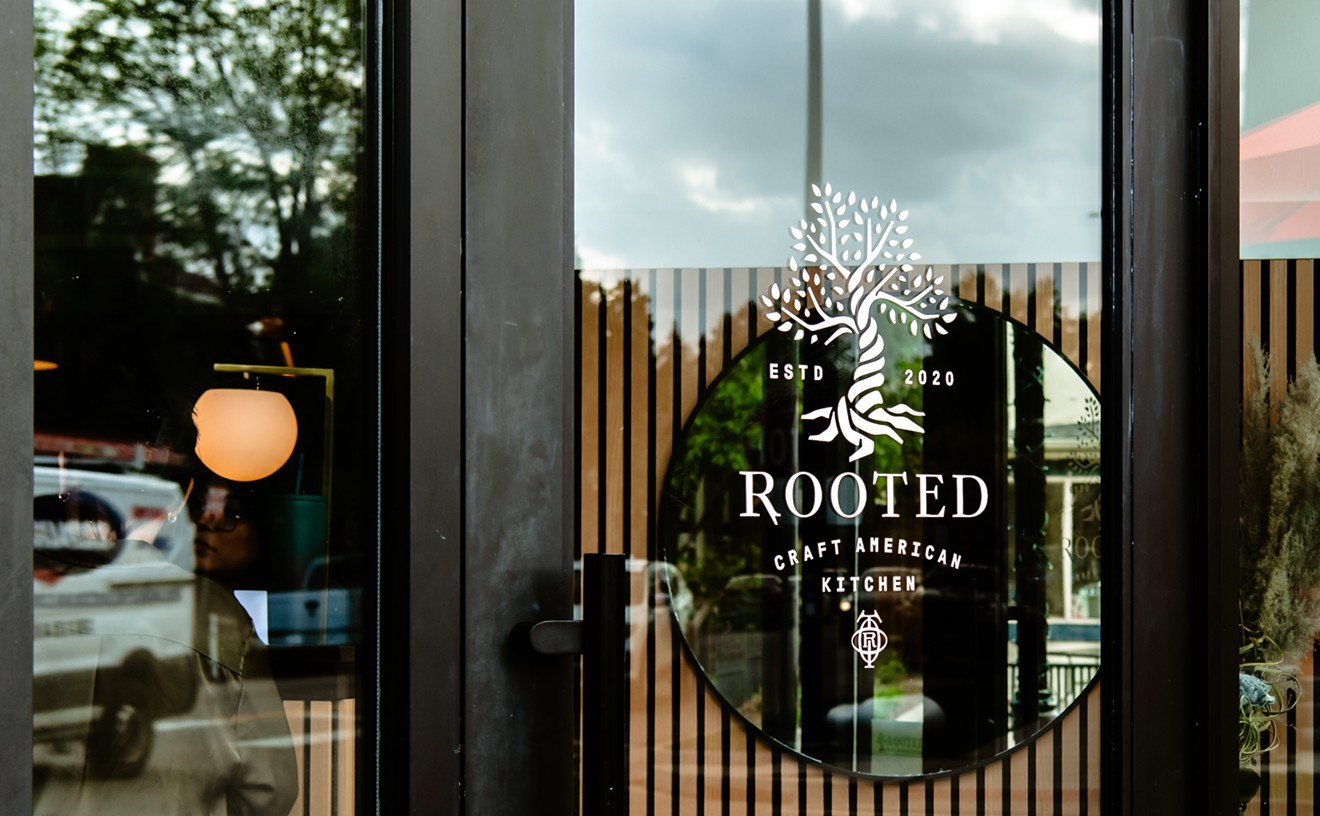A friend recently returned from Peru extolling the quality of the Andean nation's cuisine, including alpaca, something I'd never considered as a potential protein source. Hearing this, I wondered if, given the chance, I would order alpaca pot roast or loin of llama. After all, llamas, alpacas and their kin seem more like pack animals — fluffier versions of burros or mules — than prime cuts for the grill. My thinking was mostly academic conjecture, though, since I knew of no local restaurants that served such dishes — until I came across the online menu of Pikkas, a Peruvian restaurant that occupies the below-street-level spot in Cherry Creek North that had previously housed two Italian restaurants: Campo de Fiori, which ended a decade-long run in 2010, and then Abrusci's.
I'll ruin the suspense now (and dispel the horror): I did not eat alpaca, but the academic question was answered — I would have. As it turns out, the menu on the Pikkas website is obsolete and the listed alpaca albondigas (a musically pleasing name for a dish that's really just meatballs) haven't been offered for so long that the bartender gave me a funny look when I asked about them.
In addition to its inaccurate website, there are a couple of things you should know about Pikkas up front. First, since the website is outdated and the hours aren't posted on the door or on the arbor entryway from the sidewalk, it's difficult to know exactly when Pikkas is open. Standard dinner hours are a good bet, but lunch seems a little iffy. The bartender told me that the restaurant is open every day for lunch and dinner and every day but Monday for breakfast, too, but I found the place closed at 1:30 p.m. on a Monday — although when I returned a few hours later the open sign was on. (Subsequent digging revealed that "breakfast" means 11 a.m. and that Pikkas actually opens at 3 p.m. on Mondays.)
Second, the place was quite warm inside, whether by choice or due to mechanical mishap. Since Pikkas is below street level, it probably cools off quickly once the sun goes down, and there are also two shady patios for outdoor dining if the dining room seems a little muggy. A couple of cold drinks will also dispel the heat in a hurry, which brings up the third point: Pikkas has a great bar with a variety of cocktails not limited to pisco sours or the fruity concoctions found in many other Peruvian joints. While the pisco sour itself is a fine cocktail when made properly, the addition of fruit purees can be a little overwhelming. Pikkas's cocktail list is modern and balanced, with variations on well-known classics made distinctly South American with the addition of pisco, the potent signature spirit of Peru.
The menu at Pikkas covers quite a few Peruvian classics: ceviches of different styles (including a vegetarian version made with grilled mushrooms), skewered meats, shrimp in a variety of sauces, and hot and cold potato preparations. But it also offers a few unique dishes featuring Peruvian ingredients used in non-traditional ways. Since the alpaca opportunity had been taken off the table, I went with the next cutest animal available: baby octopus. I wasn't disappointed: The tiny sea creatures had been char-grilled and stood upright on potato chips in poses that made them appear frozen in mid-dance. An alpaca meatball would look (and probably taste) like any other meatball, but this row of octopus taunted with audacity. There was nothing to do but pop them in my mouth one by one, each accompanied by a warm potato chip.
The papa rellena was decidedly tamer and more traditional. It's typically a deep-fried ball of mashed potato stuffed with meat; Pikkas prepares its version so that the finished dish resembles a baked potato in size, shape and hue, but the crisp shell gives way to fluffy potatoes and spiced ground beef studded with bits of olive and warmed with a touch of chile peppers. Green and yellow sqiggles of sauce decorated both plates — the first a creamy, herb-based mixture and the second a cousin of a spicy aioli.
I'll admit it: part of me is relieved that I didn't find my alpaca meatballs. I have no trouble with cute (rabbit is one of my favorites), but there's something just a little equine about an alpaca that causes hesitation. An alpaca is tall enough to look you in the eye and has a judgmental expression when it does so. I don't hold it against those countries that serve horse (although that's another protein I've so far yet to try) and I certainly don't judge Peru for utilizing indigenous species for culinary purposes. And compared to beef, pork or chicken, alpaca is likely a far purer source of protein (commodity alpaca just doesn't exist here). Sure, I'll try it at the next time I have a chance, but in the meantime, Pikkas has plenty of other options to keep me exploring the world of Peruvian cuisine.
[
{
"name": "Air - MediumRectangle - Inline Content - Mobile Display Size",
"component": "12017618",
"insertPoint": "2",
"requiredCountToDisplay": "2"
},{
"name": "Editor Picks",
"component": "17242653",
"insertPoint": "4",
"requiredCountToDisplay": "1"
},{
"name": "Inline Links",
"component": "18838239",
"insertPoint": "8th",
"startingPoint": 8,
"requiredCountToDisplay": "7",
"maxInsertions": 25
},{
"name": "Air - MediumRectangle - Combo - Inline Content",
"component": "17261320",
"insertPoint": "8th",
"startingPoint": 8,
"requiredCountToDisplay": "7",
"maxInsertions": 25
},{
"name": "Inline Links",
"component": "18838239",
"insertPoint": "8th",
"startingPoint": 12,
"requiredCountToDisplay": "11",
"maxInsertions": 25
},{
"name": "Air - Leaderboard Tower - Combo - Inline Content",
"component": "17261321",
"insertPoint": "8th",
"startingPoint": 12,
"requiredCountToDisplay": "11",
"maxInsertions": 25
}
]











